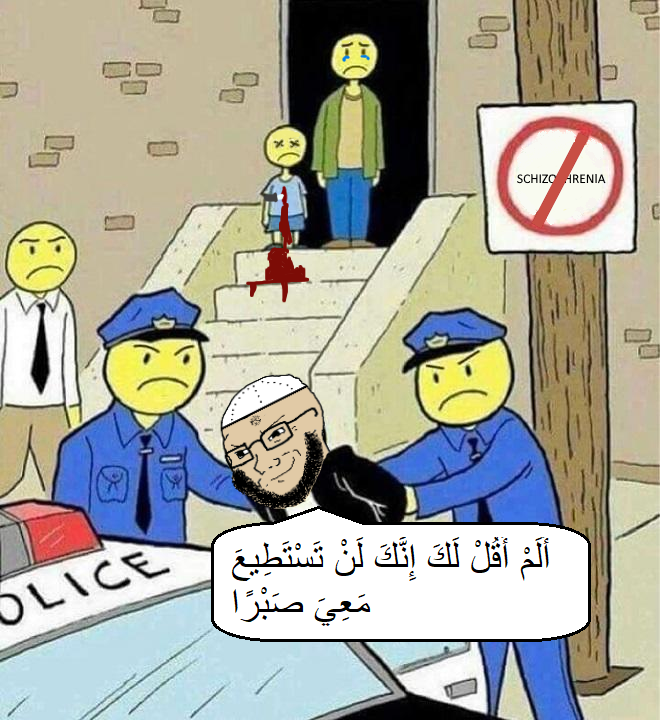IP 18.190.154.24 has been banned until the end of time because of VPN Detected
If you couldn't possibly be guilty of what you're banned for, the person we banned probably had a dynamic IP address and so do you.
See http://whatismyipaddress.com/dynamic-static for more information.
Image

Commenting
Comment Formatting Options
Want to report a comment? Report the post itself with relevant details.
Advertisement
 SoyBooru
SoyBooru
In case you don't know, this is a reference to the Quranic story of Moses and a """wise man""" called Al-Khidr. At one point during their journey, Al-Khidr kills a random little boy for apparently no reason. Moses gets pissed at him for doing that, so Al-Khidr responds with the text above.
Later when Moses decides that he has enough of Al-Khidr's bullshit, Al-Khidr explains that the reason why killed the little boy was because he knew through divine knowledge that the child would eventually grow up to become a kaffir. "And as for the boy, his parents were believers, and we feared lest he should oppress them by rebellion and disbelief. So we intended that their Lord should change him for them for one better in righteousness and near to mercy."
The lesson we learn from this story is:
You WILL ignore my typos